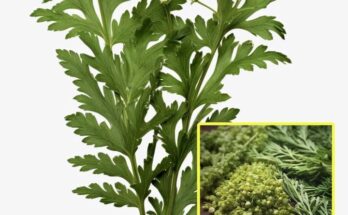Growing tomatoes is a beloved summertime activity that brings joy not only in the growing process but also in the delicious fruits of your labor. However, without proper support, tomato plants can suffer from diseases, reduced air circulation, and decreased sun exposure which can all lead to a significantly lower yield. Learn how to properly stake and support your tomato plants to ensure they have the best conditions to thrive and produce a bountiful harvest.
This article delves into nine innovative and effective methods to support your tomato plants. Each technique is designed to cater to different types of tomatoes and garden spaces, from the traditional stake in the ground to more creative trellising methods. Whether you are a beginner gardener or have been cultivating tomatoes for years, these tips will help you secure your plants for optimal growth and an impressive harvest.
1. Single Stake Method
For determinate tomato varieties, the single stake method is a simple and time-tested means of support. Insert a sturdy stake about 4-6 inches from the plant and tie the main stem to the stake using soft materials like cloth strips or twine, as the plant grows. This method encourages vertical growth and can help in maximizing space in your garden.
2. Tomato Cages
Tomato cages are perhaps the most common support structures used by gardeners. They are easy to use and provide support to the plant from all angles. Choosing the correct size is essential, as determinate tomatoes do well with smaller cages while indeterminate varieties require larger, sturdier cages. They also reduce the need for tying as the plants naturally lean on the structure.
3. Trellises
Trellising tomato plants is especially beneficial for indeterminate varieties that grow long vines. Constructing a trellis against a wall or using a freestanding version can promote healthy growth by providing ample space for the plants to climb, while also facilitating air circulation and sun exposure.
4. The Florida Weave
This technique involves weaving twine between plant rows and around stakes, providing collective support for a row of plants. The Florida Weave is cost-effective and less labor-intensive than staking individual plants but still offers good support to the growing plants.
5. String Method
For gardeners with limited space, using vertical strings from a sturdy overhead structure can be an excellent support option. Tie the base of your plants to strings and twist them around the strings as they grow. This method can support many plants in a small area and simplify harvesting.
6. Spiral Stakes
Spiral stakes are not only functional but also decorative. These metal stakes allow tomato plants to grow up their spirals naturally. They’re particularly useful for smaller determinate tomato plants and are a breeze to set up.
7. A-Frame Structures
Building an A-frame structure with horizontal bars can support several tomato plants at once. This approach is excellent for both determinate and indeterminate varieties and can be especially useful in windy locations as it provides a stable support system.
8. Basket Weaving
Basket weaving involves making a basket-like structure around your plants out of stakes and twine. It’s a supportive and aesthetically pleasing method that works well for bushier varieties of tomatoes and allows for easy harvesting.
9. Grow Bags with Built-In Support
Recently, there has been an introduction of grow bags that come complete with built-in support systems. These are particularly suitable for patios, balconies, or small gardens. The bags make it easy to move plants as necessary, and the integrated support keeps tomatoes off the ground.
Supporting tomato plants is an essential step in your gardening routine. It helps prevent disease, improves air circulation, and canopy exposure to sunlight. With these nine ideas for tomato staking and support, you can choose the method that best fits your garden layout, tomato type, and personal preference. Now is the time to provide your plants with the structure they need for a successful harvest.



